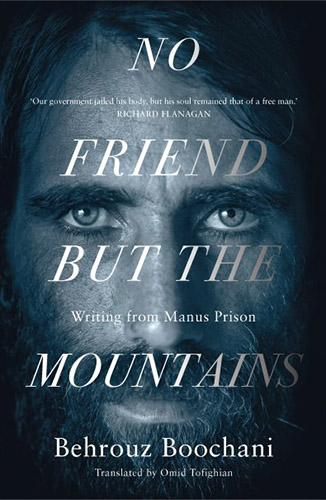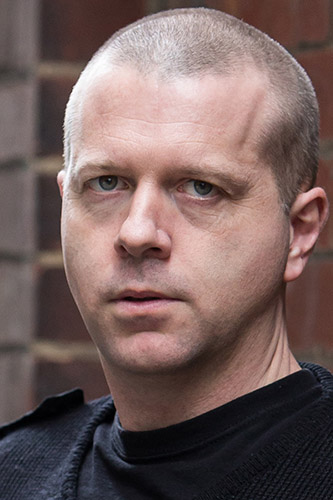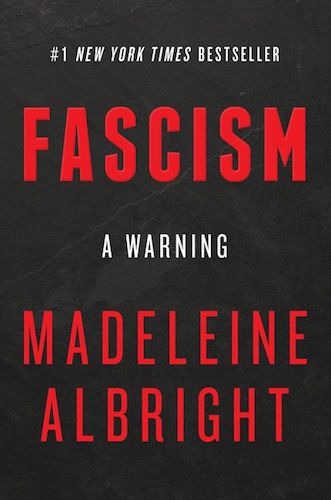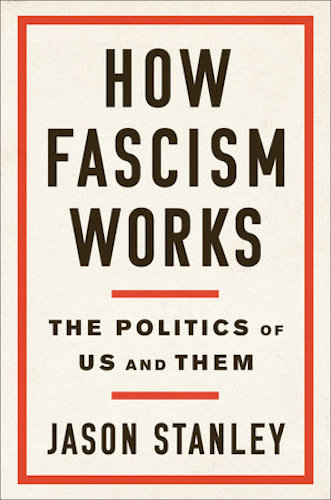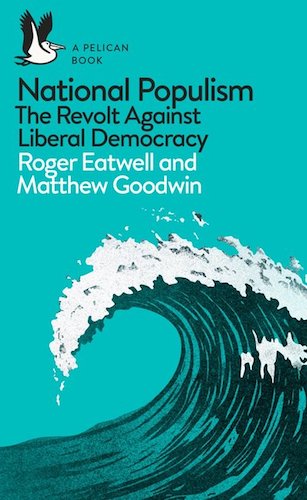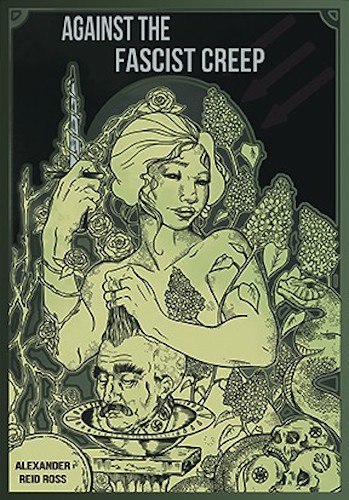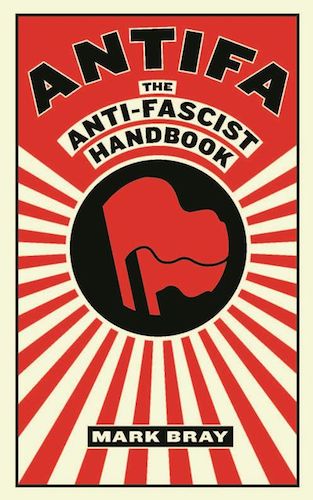A Place of Punishment: No Friend But the Mountains by Behrouz Boochani
In his astonishing book At the Mind’s Limits: Contemplations by a survivor on Auschwitz and its realities (1980), Jean Améry devotes a chapter to intellectuals in the Nazi camp. An essayist and novelist himself, he focuses on how writers made sense of their incarceration. ‘Did intellectual background and an intellectual basic disposition help a camp prisoner in the decisive moments?’ he asks. ‘Did they make survival easier for him?’
The answer, he decides, was no. Those whom he described as ‘cultured’ found that culture a hindrance. The liberal intellectuals, with their commitment to reason and rationality, could not explain Auschwitz, a place where, as a guard once instructed Primo Levi, ‘there is no why’. Furthermore, they discovered that imprisonment stripped of its power the literature to which they’d devoted their lives. Améry recalls being marched back from the IG Farben work site on a freezing winter evening and reciting to himself a verse from Hölderlin, silently mouthing lines that, prior to his arrest, had moved him profoundly. ‘But nothing happened,’ he explains. ‘The poem no longer transcended reality. There it was and all that remained was objective statement: such and such, and the Kapo roars “left”, and the soup was watery, and the flags are clanking in the wind.’
One hesitates to invoke Auschwitz in a discussion of Australia’s asylum seeker detention regime, a system that, for all its horrors, does not implement genocide. But Behrouz Boochani’s No Friend But the Mountains – a book about, among other things, the power of writing – invites the comparison, as a text self-consciously positioned within a broader literature of incarceration.
The narrative begins with Boochani leaving Indonesia on a decrepit boat, a voyage that culminates in his arrival on Australian territory (specifically, Christmas Island). There, as the asylum seekers learn of their imminent transfer to Manus Island, they’re told to change into new clothing provided by the guards.
A grim-looking officer gives a set of clothes to anyone who passes through the strip-and-search stage, even though the clothes don’t match the size of the person in any way whatsoever. There is no choice. We have to wear whatever they issue …. Yellow polyester T-shirts – they transform our bodies, they utterly degrade us.
The vignette is immediately recognisable as a key generic element of the prison narrative. Compare, for instance, a passage from Alexander Berkman’s classic Prison Memoirs of an Anarchist (1912). ‘Humiliation overcomes me,’ writes Berkman, ‘as my eye falls, for the first time in the full light of day, upon my striped clothes. I am degraded to a beast.’ Berkman was imprisoned for attempting to assassinate the industrialist Henry Frick during the great wave of anarchist terrorism in the 1890s. Boochani is incarcerated in a contemporary refugee detention facility. Yet the scene is almost identical.
The French novelist and revolutionist Victor Serge explains in Men in Prison (1930) why the first encounter with prison uniform so consistently features in narratives of jail:
Man imprisoned differs from man in general even in his outward appearance. Prison marks him from the very first hour. … He feels as if he has been stripped of part of himself, reduced to an impotence inconceivable an hour before. His clothes hang loose, with nothing to fasten them, constantly in the way. His shoes yawn open. He is disheveled from head to foot.
The uniform externalizes the transformation of the detainee. In civilian clothes, he’s a citizen; in the ill-fitting costume of the jail, he becomes a prisoner.
This is a crucial aspect of Boochani’s project: to understand Manus Island first and foremost as a place of punishment, where ‘waiting is a mechanism of torture used in the dungeon of time.’ Throughout No Friend but the Mountains, he pointedly refers to the facility in which he remains contained, not by its official description as a ‘Regional Processing Centre’ but rather as ‘Manus Prison’, a characterization that universalises his account.
Serge again:
All men who have experienced prison know that its terrible grasp reaches out far beyond its physical walls. There is a moment when those whose lives it will crush suddenly grasp, with awful clarity, that all reality, all present time, all activity – everything real in their lives – is fading away while before them opens a new road onto which they tread with the trembling step of fear.
Boochani’s book chronicles how the road unfurls for detained refugees: specifically, how they’re gradually and systematically destroyed. ‘I am a piece of meat thrown into an unknown land,’ he writes, ‘a prison of filth and heat.’ The overcrowding in a crudely built camp leads to what he calls ‘a confrontation of bodies, a confrontation of human flesh.’ That flesh then begins to rot in the tropical heat of Papua New Guinea. Again and again, Boochani shows how the camp transforms living people into decaying flesh. The decomposition reaches its logical and grotesque apotheosis with self-butchery as inmates carve away at their own bodies. ‘When someone cuts themselves,’ Boochani explains, ‘it elicits a form of respect among the prisoners. However, the criterion pertains to the depth of the slit, the severity of the wound. The more terror inflicted, the greater the credibility. It is unwritten and cryptic – but it is real.’
The prisoners themselves become ‘pieces of meat in a metal pressure cooker’. But the camp also stinks of other bodily odours – in particular, human shit:
This soul-destroying prison is made with a mix of lime and dirt. Everywhere, fine white sand sticks to one’s feet, particularly to the plastic flip-flops. From one of the camp to the other drainpipes protrude from the kitchen and bathrooms. They create a potion of rotten excrement … the stench of sludge, a multicoloured spread laid out for both microscopic and mammoth mosquitoes which linger regularly around the troposphere above the drains.
The untreated sewage spilling out around the facility produces a ‘smell … so vile that one feels ashamed to be part of the human species.’
The inability of prisoners to attend to basic needs with dignity ensures that they no longer feel part of the civilized order, a point Boochani illustrates by the fate of a detainee known as the ‘Prime Minister’. The man – once an engineer and businessman — earns his nickname by his gravitas and character. ‘His kindness is unconditional,’ says Boochani, ‘and he is generous. He is a man of virtue.’ Acutely conscious of his dignity, the Prime Minister plans his routine so as to obtain some privacy in the camp’s squalid toilets. One day, however, the need to defecate overcomes him when the queue is at its longest and so he must rush off to relieve himself in public. In his own eyes – and the eyes of the other prisoners – he’s forced, quite literally, to shit all over his own principles and reputation. The attendant humiliation drives him to accept the offer of return to the country he’d sought to escape. ‘The prison dictates,’ Boochani concludes, ‘that the prisoner accept, to some degree, that they are wretched and contemptible – this is an aspect of the system designed particularly for them.’
In Auschwitz, Améry writes, survival in the face of systemic dehumanization necessitates a kind of rat cunning, a set of skills most intellectuals lacked. ‘Camp life demanded,’ he explains, ‘above all bodily agility and physical courage that necessarily bordered on brutality. The intelligentsia were only seldom blessed with both, and the moral courage that they often tried to employ in place of the physical was not worth a trifle.’ He presents, by way of example, an encounter with a professional pickpocket stealing other inmates’ shoelaces, a confrontation that could best be resolved by a physical violence of which intellectuals were mostly incapable.
Superfluous to say that only very rarely did the lawyer or gymnasium teacher know how to execute an uppercut properly; rather, he was far more often the receiver, and in taking it hardly more able than in giving it.
Working class prisoners fared better not only because of their physical tenacity but because they could integrate the experience into their existing knowledge of social brutality. Poor people already understood that the powerful mercilessly persecuted the weak and were accustomed to mounting small resistances. For them, ‘the camp logic was merely the step-by-step intensification of economic logic, and one opposed this intensification with a useful mixture of resignation and the readiness to defend oneself.’
Literary intellectuals lacked such resources. Typically, they refused at first to believe that something as senseless as Auschwitz might be real. Then when the materiality of the camp asserted itself, they collapsed into embracing Nazism as inevitable, with ‘the power structure of the SS state tower[ing] up before the prisoner monstrously and indomitably, a reality that could not be escaped and therefore finally seemed reasonable.’
Like Améry in Auschwitz, Boochani becomes in Manus a number. ‘Slowly but surely I must get used to that number,’ he says. ‘From their perspective, we are nothing more than numbers. I will have to forget about my name.’ He, too, encounters a system that, to the inmates, appears entirely arbitrary. For instance, the authorities distribute food according to a method devoid of equity or even consistency, allowing the most determined and selfish refugees to eat far better than everyone else. As a result, ‘the prisoner who behaves in a more despicable and brutish manner has a more comfortable lifestyle.’ Boochani acknowledges his own desire to beat up the queue jumpers but also recognizes that his physical frailty makes violence untenable. Like the intellectuals Améry describes, he’s incapable of ‘execut[ing] an uppercut properly’ and must therefore survive on less food.
Yet where Améry concludes that culture provides no solution, Boochani insists that the key to surviving ‘all the suffering inflicted by the prison’ lies in the exercise of creativity. How do we explain that? Obviously, part of the answer pertains to real differences between Auschwitz and Manus. The first is a death camp; the second is not. Améry notes that even within Nazi facilities the varying degrees of violence endured by prisoners altered their relationship to art. His friend Nico Rost could take refuge in high culture when incarcerated in Dachau, even to the extent of identifying ‘classical literature as a substitute for Red Cross packages’. But Améry insists that Rost’s experience only made sense because the Dachau regime was markedly less brutal than the regime in Auschwitz.
In Manus, Boochani describes a man he calls ‘Maysam the Whore’ who mounts a cultural rebellion that would have been impossible in a Nazi camp. Maysam performs a kind of satirical cabaret, both to annoy the Australian guards (no noun in the book conveys as much contempt as the ‘Australian’) and to entertain the inmates. His act, Boochani writes, is a form of resistance, intended to ‘spite those people who exiled them to the prison.’ With the guards posting notices declaring ‘games prohibited’, the pretence of happiness allows refugees to preserve their humanity.
[Maysam the Whore] employs a beautiful form of rebellion that has enormous appeal for the prisoners. … He stands in direct opposition to a system that wants to fatten up lambs for slaughter. With just one word spoken by him, we experience the essence of life.
Maysam’s resistance eventually falters and fails, with his dances ultimately unable to counter the brutalization of the camp. ‘As days go by in Manus Prison, even Maysam the Whore becomes more secluded and starts to deteriorate.’
Boochani’s strategy for survival is different. It rests precisely on the high literary culture that Améry declares ineffective in Auschwitz. As translator Omid Tofighian explains, the manuscript of No Friend but the Mountains emerged from the surreptitious transmission of short passages in Farsi, sent from the camp via WhatsApp and similar platforms. Translated and compiled by Tofighian, the messages make a text that is deliberately and defiantly literary – ‘rich with cultural, historical and political frames of reference and allusion’.
In an interview with Arnold Zable, Boochani describes how literature facilitated precisely the transcendence that Améry sought but couldn’t find in poetry. ‘[W]hen I was writing,’ he says, ‘I was completely free … those moments were the most exciting … because I found myself out of the prison as a free man.’
Améry suggests that literature – or, more specifically, German literature – failed in Auschwitz partly because of its complicity with fascism. This is an argument compatible with the verdict famously delivered by George Steiner in Language and Silence (1967):
In a disturbing number of cases [during the Nazi era] the literary imagination gave servile or ecstatic welcome to political bestiality. That bestiality was at times enforced and refined by individuals educated in the culture of traditional humanism. Knowledge of Goethe, a delight in the poetry of Rilke, seemed no bar to personal and institutionalized sadism. Literary values and the most utmost of hideous inhumanity could coexist in the same community, in the same individual sensibility….
The Jewish intellectual of German background was confronted with real evidence that, as Améry put it, culture ‘did not belong to him, but to the enemy.’ By contrast, in No Friend But the Mountains, Boochani draws on a cultural tradition explicitly understood in opposition to his jailers. The book’s very title, an invocation of an old proverb, proclaims the Kurdish necessity for self-reliance, while Tofighian emphasises the text’s relationship to classical and contemporary traditions from Iran and (in particular) Kurdistan:
Boochani’s book is a contribution to the Kurdish literary tradition and Kurdish resistance. Interpretations need to be situated within the styles and structures that have characterized Kurdish creativity for centuries, collective memories of historical injustice and Kurdish political history, and their relational concepts of being and becoming that are connected to the land.
In At the Mind’s Limits, Améry distinguishes the literary intelligentsia in Auschwitz from the political activists or religious believers whom, he says coped much better with their incarceration.
One way or the other, in the decisive moments their political or religious belief was an inestimable help to them, while we skeptical and humanistic intellectuals took recourse, in vain, to our literary, philosophical, and artistic household gods.
For Boochani, however, it’s literature that, quite concretely, enables solidarity.
From the first adoption of the mandatory detention policy in 1994, people imprisoned by Australia have fought back. The story of the camps is a tale of suffering; it’s also a tale of demonstrations, hunger strikes, breakouts, petitions, legal challenges and other manifestations of defiance.
The struggle within Australia to change refugee policy has been determined. A wide range of groups have deployed a huge array of strategies in opposition to mandatory detention. Activist Richard Bailey describes the pro-refugee campaign as ‘the most sustained and powerful social movement Australia has seen in 20 years’. The campaign has had some successes. Contrary to what’s often assumed, the majority of Australians do not see punitive border policies as a priority. Indeed, in 2007, the widespread resistance to Howard’s refugee policy led to Kevin Rudd campaigning on a platform that included opposition to ‘temporary protection visas’, the closure of Nauru and Manus, and the release of 90 per cent of those in mainland detention centres. Yet the terms of the debate have not fundamentally changed. Once in power, Labor responded to refugee flows from Sri Lanka, Afghanistan and elsewhere with an intensification of ‘border protection’ rhetoric, culminating in the so-called ‘Pacific Solution’ announced in the dying days of the second Rudd administration. Since then, the commitment of successive governments to Nauru and Manus has shown the inability of activists to mobilise a mass constituency for change.
Instead, pro-refugee sentiment within Australia has tended to find institutional expression in particular pockets of liberal sentiment – one of which has been the infrastructure of Australian literature. That’s the context for Boochani’s book, a text that emerges from a scaffolding of literary activism that it itself helped facilitate. In his interview with Zable, Boochani explains:
When I was first exiled to Manus … I did not know anyone in Australia. I smuggled a phone in to work on as a writer and took a few months to find some contacts outside of Manus. I became friends with Janet Galbraith and then later she introduced me to you. Now my network of people who I am working with is getting bigger.
That network now includes Kirrily Jordan at the Australian National University, the Iranian intellectuals Najmedeen Weysi, Farhad Boochani, Toomas Askari; the translators Moones Mansoubi and Sajad Kabgani; and others. Before Boochani secured a contract with Picador, sections of what would become No Friend but the Mountains appeared in Mascara Literary Review and Island magazine. He thus credits literature with saving his life.
Previously, at any time I expected a guard would attack my room. That’s one of the reasons why I did not publish anything under my real name for more than two years. I did not feel safe and for a while I even thought that the system might kill me. At that time, when I was unknown, the system could have killed me in the way that it killed Reza Barati … Being known, perhaps, and my work being recognised and supported by organisations and other thinkers and artists perhaps gives me an element of protection.
Yet if Boochani’s relationship with an external literary network makes his book possible, it also presents certain difficulties with its reception. Politically, prison literature typically relies on either of two rhetorical claims. The first stresses the difference between life inside and life outside, to urge reform (in the liberal version) or to reveal the depravity of the underworld (the conservative version). The second proceeds in precisely the opposite direction. It uses the experience of prison to draw parallels between incarceration and freedom, with the inmate’s suffering presented as embodying, in concentrated form, a more universal oppression. For instance, in his introduction to Men in Prison, Richard Greeman describes Victor Serge’s work not so much as a condemnation of penal conditions but as an analysis of the ‘a world organised for the purpose of repression and finding its ultimate expression (and the source of its own negation) in the brutality of prison.’
The diffusion of a liberal pro-refugee sentiment throughout the Australian literary community predisposes booksellers, reviewers, festival organisers and readers to appreciate a book from Manus. But the liberalism of the intelligentsia also encourages a reading of No Friend but the Mountains as making the first kind of rhetorical claim, even though it’s quite clearly making the second.
Take, for instance, Richard Flanagan’s introduction: ‘Reading this book is difficult for any Australian,’ he writes. ‘We pride ourselves on decency, kindness, generosity and a fair go. None of these qualities are evident in Boochani’s account of hunger, squalor, beatings, suicide and murder.’ On that presentation, Manus represents an anomaly, a crime that demands a reckoning before similar injustices are ‘repeated on a larger, grander, and infinitely more tragic scale in Australia’. That’s a legitimate and respectable argument – but it’s not the one made by Boochani.
Throughout No Friend but the Mountains, Boochani employs the concept of ‘kyriarchy’, a term taken from feminist theology to refer to a complex intersection of oppressions. The Kyriarchical System in Manus, he argues, pits the inmates against each other, ensuring their isolation and loneliness ‘until the prison’s Kyriarchal Logic triumphs with their collapse and demise.’
But at several points Boochani also implies that the logic extends beyond the camp, with Manus merely one aspect of a ‘border-industrial complex’ that functions to atomise and control subaltern classes across the globe. In that sense, for Boochani, the Kyriarchical System already applies within Australia itself, where the existence of facilities like Manus fosters an anti-refugee sentiment that pits ordinary citizens against each other. Because those within Manus encounter border-policing through its most extreme manifestation, they are in a privileged position to understand the system as a whole.
Flanagan concludes his foreword to No Friend but the Mountain by hailing Boochani as a ‘great Australian writer’. But the book’s ‘introductory reflections’ by Omid Tofighian (which, somewhat confusingly, appear at the end) implicitly problematise that claim, by inviting the reader to consider two islands, which it identifies as ‘polar opposites’.
One island kills vision, creativity and knowledge – it imprisons thought. The other island fosters vision, creativity and knowledge – it is a land where the mind is free. The first island is the settler-colonial state called Australia, and the prisoners are the settlers. The second island contains Manus Prison, and knowledge resides there with the incarcerated refugees.
In that passage, rather than being ‘a great Australian writer’, Boochani is presented as possessing distinctive insights precisely because he’s not Australian and thus not part of a settler-colonial society in which the border-industrial complex is normalised. In this way, the form of his book fundamentally challenges the framework in which the so-called refugee debate plays out in Australia.
Prison literature generally doesn’t dwell on the conventional judicial assessments. Instead of assessing the guilt or innocence of people behind bars, the genre focuses on the opposition between those imprisoned (whatever their crime) and those guarding them. In No Friend but the Mountains Boochani does not ask why inmates ended up on Manus: rather, he takes for granted their shared interest in freedom.
As Sarah Lazare has recently argued, the distinction between refugees and migrants, so central to Australian discussions, was
ideological from the outset, formally emerging in the early 1950s as an anti-communist tool wielded by U.S. and Western European governments. Under U.S. law, the concept of a ‘refugee’ first emerged to describe individuals seeking sanctuary in non-communist countries. On the international level, the United States played a key role in developing norms that emphasize the liberties of political dissidents, while denying the right to live free from poverty.
From the perspective of a displaced person, the distinction between (good) refugees and (bad) economic migrants has never made much sense. If you’re starving, you’re in just as much danger as if you’re menaced by armed men. Should we classify the Irish who fled to Australia during the Great Famine in the nineteenth century as refugees or migrants? More importantly, what about the millions who, scientists tell us, will be soon displaced by climate change? How will the current framework handle them?
Such examples illustrate the growing incompatibility between a globalised economy and the borders dividing nation-states, an incompatibility that, in the long term, makes internationalism, whether we like it or not, a precondition for successful social movements. Of course, we’re a long way from that now, with the refugee struggle very much on the defensive. Yet there’s definitely a sense in which No Friend but the Mountains can be read as a book for the future – an effort to create the readership through whom it will eventually become more intelligible.
Works cited
At the Mind’s Limits: Contemplations by a survivor on Auschwitz and its realities, Jean Améry, Indiana Unversity Press, Indianapolis, 1980
Prison Memoirs of an Anarchist, Alexander Berkman, Schocken Books, New York, 1970
Men in Prison, Victor Serge, Penguin, 1972
